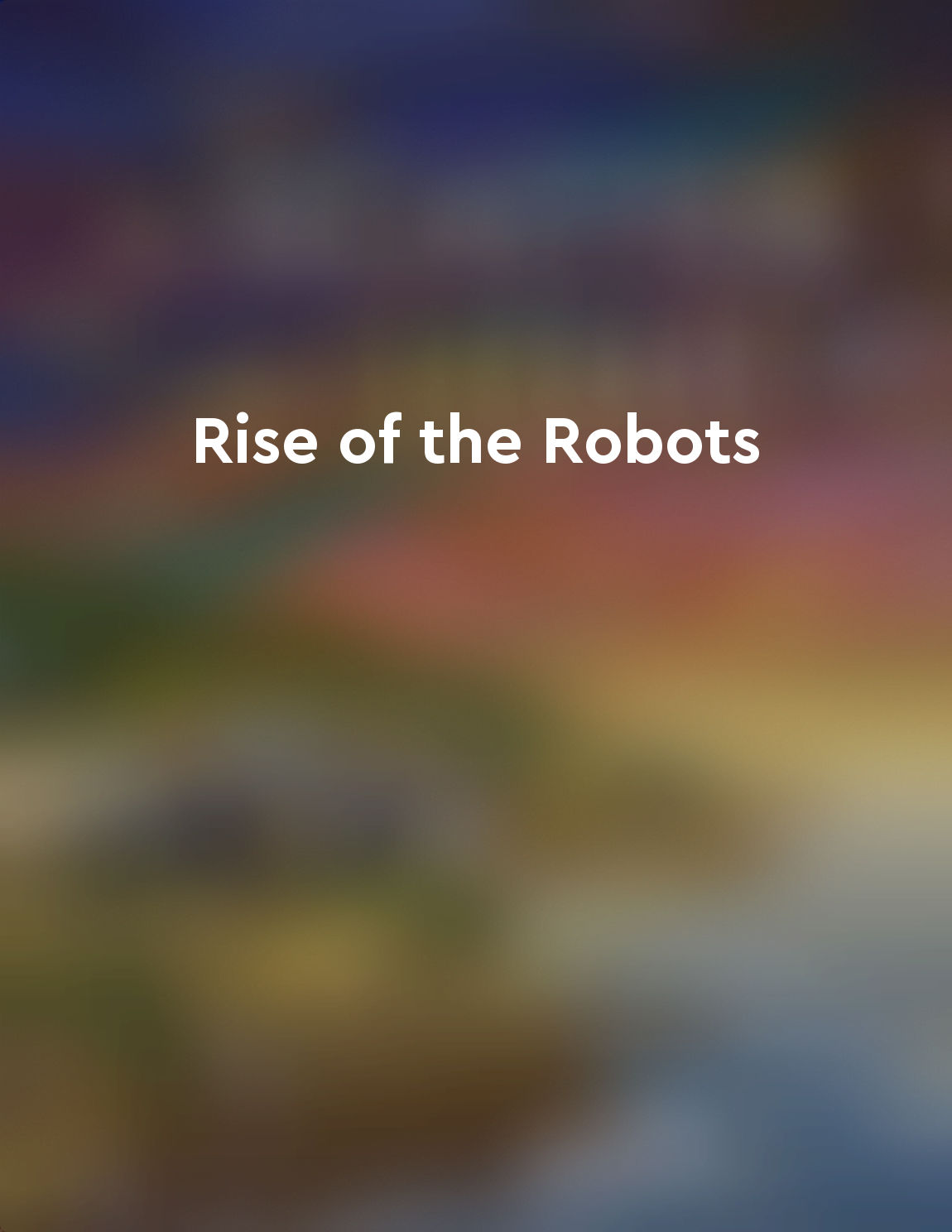Human workers are being replaced by machines in various fields from "summary" of Rise of the Robots by
The rise of automation is transforming the workforce in ways we have never seen before. Machines are increasingly taking over tasks that were once performed by human workers, from manufacturing to customer service to even creative professions. This shift is driven by advancements in technology such as artificial intelligence and robotics, which are now capable of performing complex tasks with speed and accuracy that far surpass human capabilities. As machines become more sophisticated and cost-effective, businesses are finding it increasingly attractive to automate their operations. This has led to a decline in the demand for human workers in many industries, as companies seek to cut costs and increase efficiency by replacing human labor with machines. While this may lead to increased productivity and profitability for businesses, it also has profound implications for the future of work and society as a whole. One of the consequences of this trend is the displacement of human workers, particularly those in low-skilled and routine jobs. As machines become more adept at performing tasks that were once the domain of humans, many workers find themselves out of a job with few prospects for reemployment. This can lead to economic hardship and social unrest, as the gap between the haves and have-nots widens and traditional employment opportunities disappear. Moreover, the rise of automation raises questions about the nature of work and the value of human labor in an increasingly automated world. As machines take on more responsibilities, what role will there be left for human workers? How will society ensure that everyone has access to meaningful employment and a decent standard of living? These are questions that policymakers, businesses, and individuals must grapple with as we navigate the transition to an automated future.- The trend of machines replacing human workers in various fields is a reality that we must confront. While automation offers many benefits in terms of efficiency and productivity, it also poses significant challenges for the workforce and society at large. As we move forward, it is essential that we find ways to ensure that the benefits of automation are shared equitably and that all members of society have the opportunity to thrive in an increasingly automated world.


